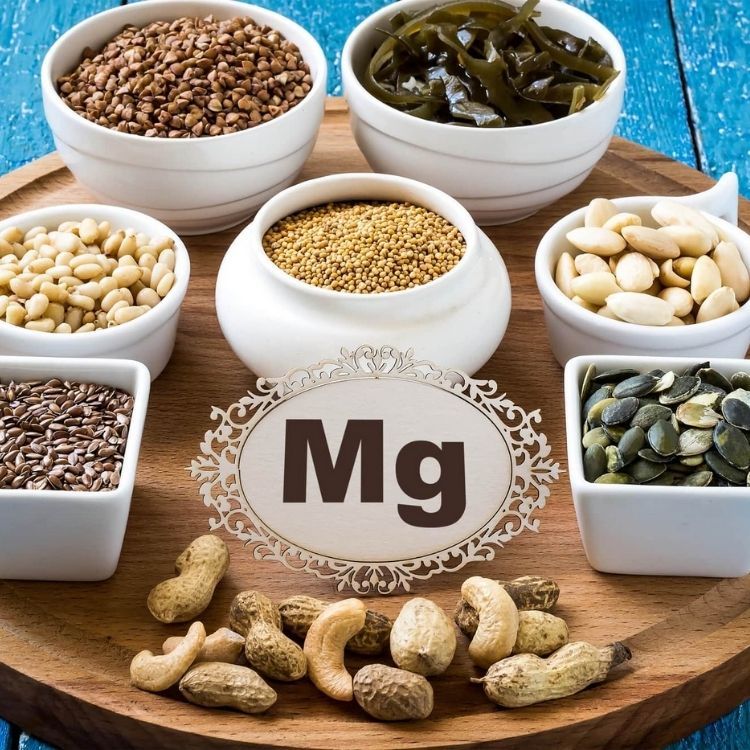Magnesium-New Medical Miracle

The mineral magnesium has amazing powers to treat and even prevent serious medical conditions.
New finding: Magnesium is a key factor in memory and learning. Adequate levels may even prevent Alzheimer's disease. Researchers at the Picower Center for Learning and Memory at the Massachusetts Institute of Technology found that magnesium affects the synapses connections between brain cells-by improving their plasticity, or ability to adapt to change, which usually declines with age.
Most people don't get enough magnesium. An adult's daily nutritional requirement is 400 milligrams (mg), but a survey conducted by the Centers for Disease Control and prevention (CDC) found that the average intake is approximately 290 mg Here's bow magnesium can help you...
Diabetes
We're in the midst of a diabetes epidemic more than 18 million Americans have type 2 diabetes, a disorder of blood sugar (glucose) metabolism. Another 41 million have insulin resistance, a prediabetic state characterized by higher-than normal blood levels of glucose and insulin, the hormone that regulates blood sugar. Diabetes increases the risk of heart disease and stroke and can lead to kidney failure, eye problems, nerve damage and other dangerous conditions.
Magnesium enhances insulin secretion, which facilitates sugar metabolism. Without magnesium, insulin is not able to transfer glucose into cells. Glucose and insulin build up in the blood, causing various types of tissue damage.
Proof that it works: Researchers at Harvard University tracked more than 120,000 men and women for 18 years. People who had the least dietary magnesium had a 23% higher risk of getting type 2 diabetes than people who had the greatest magnesium intake.
In another study, people who had insulin resistance took a placebo or 2,500 mg of magnesium daily (a high dose that should be taken only under a doctor's care). After three months, those taking the mineral had a 25% increase in blood levels of magnesium and a 44% decrease in insulin resistance. Those taking the placebo had no change in either.
Heart Disease
Magnesium helps prevent artery walls from "hardening." It relaxes blood vessels, lowering blood pressure, and keeps calcium dissolved in the blood, thus preventing artery-clogging calcium deposits.
Proof that it works: A CDC analysis of the National Health and Nutrition Examination Survey of the diets of 13,000 people found that those who had the lowest magnesium intake had a 31% higher risk of heart disease than those who had the highest magnesium intake. In a similar study of 39,633 men, researchers from Harvard found that men who took a nutritional supplement containing magnesium had a 23% lower risk of heart disease than those who didn't.
Headaches
Research shows that people who get migraine, tension and cluster (bouts of frequent attacks) headaches often have a magnesium deficiency. Magnesium relaxes blood vessels and muscles, regulates neurotransmitters and thins the blood-which can defuse headaches.
Proof that it works: Doctors at the State University of New York in Brooklyn gave 1 gram (g) of magnesium intravenously to each of 40 patients who were experiencing migraine, tension or cluster headaches. Thirty-two of the patients reported complete pain relief within 15 minutes. People who had migraines also experienced complete relief of symptoms such as light sensitivity and nausea. All of the patients who got relief had low blood levels of magnesium before the treatment.
Restless Legs Syndrome
You're desperate to move your legs. They have a creepy, crawly sensation, usually at bedtime, preventing you from falling asleep. This is restless legs syndrome(RLS), a condition that afflicts an estimated 8% of Americans and can lead to chronic insomnia.
No one knows what causes RLS. The only drug approved by the US Food and Drug Administration (FDA) for the problem is ropinirole (Requip), which is also used to treat Parkinson's disease. The drug's side effects include intense drowsiness, and over time, you can develop a tolerance so that you need higher and higher doses. If you try to stop taking it, you may find that your restless legs get worse, a problem called rebound syndrome.
Magnesium is a natural muscle relaxant, calming spasms and twitches that either cause or aggravate RLS.
Proof that it works: For six weeks, German researchers administered magnesium to 10 RLS patients at bedtime and then monitored their sleep. Patients went from being disturbed by RLS an average of 17 times per hour to seven times per hour. Their sleep efficiency-the time spent sleeping-rose from 75% to 85%.
Kidney Stones
Magnesium's ability to keep calcium dissolved in the blood helps prevent painful kidney stones.
Proof that it works: In a 14-year study, researchers found that men who got the most dietary magnesium had a 29% lower risk of kidney stones than men who got the least magnesium.
Cramps And Muscle Pain
Magnesium relaxes muscles and relieves back and neck pain as well as fibromyalgia, a chronic condition that is characterized by fatigue and widespread pain. Magnesium also relieves night time leg cramps.
Proof that it works: Patients taking 300 mg of magnesium daily for six weeks at bedtime saw their average number of nighttime cramps decrease from nine to five.
In another study, 82 patients who had chronic low back pain were given a multimineral supplement that included magnesium. After four weeks, 72 patients had significant pain reduction.